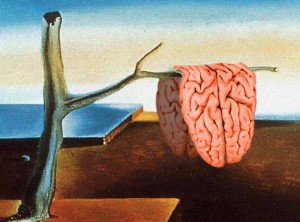By David Maillet and Daniel L. Schacter | Psychology and Aging | June 2016
Abstract:
In recent years, several studies have indicated that healthy older adults exhibit a reduction in mind-wandering compared with young adults. However, relatively little research has examined the extent to which ongoing thoughts in young and older adults are dependent on environmental stimuli. In the current study, we assessed age-related differences in frequency of stimulus-dependent thoughts (SDTs) and stimulus-independent thoughts (SITs) during a slow-paced incidental encoding task. Based on previous research suggesting that older adults rely on external information to a greater extent than young adults, we hypothesized that ongoing thoughts in older adults may be more stimulus-dependent than in young adults. We found that although older adults reported overall fewer thoughts compared to young adults, they exhibited a reduction in proportion of SITs and an increase in proportion of SDTs. In both age groups, SDTs were more frequently about the past compared with SITs, while SITs were more frequently about the future. Finally, the extent to which both young and older adults reported SDTs, but not SITs, at encoding was positively correlated with how often they reported remembering thoughts at retrieval, and SDT frequency was positively correlated with overall performance on the memory task in older adults. Our results provide evidence that ongoing thoughts in older adults may be more dependent on environmental stimuli than young adults, and that these thoughts may impact performance in recognition tasks.




